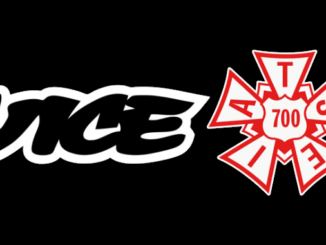
By Tris Carpenter

As expected, the Employee Free Choice Act (EFCA) got stuck in the US Senate, with fewer than the 60 votes needed to avoid a Republican filibuster. With that vote, so died the most recent effort by the Labor Movement and the Democratic Party to make it easier for people to form and join unions.
What amazed me about the debate was the gall of the Republicans who opposed the EFCA as “un-democratic”––that and the big-bucks ad campaign that was fielded in major newspapers across America portraying union leaders as thugs. Called the “Center for Union Facts,” the corporate-backed shell ran ads in USA Today and The New York Times that compared UNITE-HERE co-president Bruce Raynor (one of the most successful organizing leaders of the last two decades) to former Ugandan dictator Idi Amin!
As you might imagine, the Center for Union Facts is run by a corporate flack by the name of Richard Berman, who’s been involved in such notorious campaigns as trying to convince people that the mercury in fish isn’t harmful and fighting efforts by Mothers Against Drunk Driving to lower the blood alcohol limit for legally driving a vehicle.
It’s hard to trust and believe anyone with those credentials, but the corporate powers that be were pretty desperate. Why? Because they’re afraid––very afraid––that unions might have the historic opportunity to avail themselves of a fully codified “card check” process, in which a majority of employees can get a union started simply by signing authorization cards. And, once they have the union behind them, the EFCA would provide binding arbitration for first contracts that cannot be resolved.
The greater the portion of the post-production industry we represent, the stronger we will be, and the more we can get at the negotiating table for you.
Of course, the EFCA isn’t going to cure all that ails us organizers. A similar law has been on the books in Canada for years, yet Canadian unions have been losing ground too. But such a law would certainly give the unions far better tools in the fight for fair wages and working conditions for working folks.
All of this comes home to roost not this year, but next. The major Democratic presidential candidates are all talking about the EFCA. As we wind down 2007, the rhetoric should heat up, coming to an all-out boil by the big state primaries in early 2008. Labor is a huge factor in these elections, and the candidates will be looking to impress us with their commitment to the EFCA and Labor’s well being.
The greater the portion of the post-production industry we represent, the stronger we will be, and the more we can get at the negotiating table for you. And making organizing easier is a big part of that puzzle. You can expect the IATSE and the AFL-CIO to support a candidate based on his or her record on issues important to working people.
You’ll undoubtedly be hearing more from the IA and the Guild regarding recommendations for next Fall’s election. But just remember: Our goal is always and only to protect and improve your wages and benefits.





